Some Important Facts About Baby Diapering
Baby diapering comes with a lot of important considerations, chief among them being your baby, your preference and your budget.
Of these three, the baby comes tops for me, as no two babies are alike, even when born of the same mother.
It isn’t A One Size Fits All For Babies
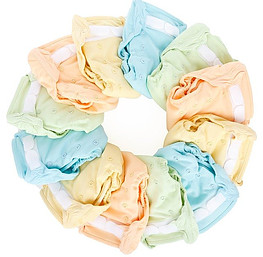
Ayaba, mother of five-year old Ari and four year old Ida, experienced this firsthand.
To her surprise, the products that worked well for Ari, caused unsettling reactions in Ida.
Ayaba explains:
“Shopping for your baby is not a one size fits all situation, as you need to consider each baby’s peculiarities and sensitivity”.
Baby diapering essentials fall into the band of baby items I refer to as the small things and money guzzlers
The Wet Months…
Money guzzlers for the simple reason that they are recurrent expenses that prove to be expensive in the long run.
The wet months are typically the infant stages of your baby’s life, characterised by 7-10 nappy changes a day, depending on the child, of course.
This isn’t to say that the toddler stages are dry.
It just means that as your baby begins to toddle, his or her daily nappy usage reduces to between 6-8 per day.
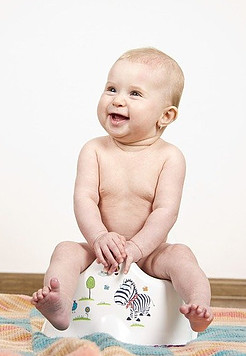
Where your baby is fully potty trained, you rarely use nappies, except for absolute necessities like traveling or a long outing.
There are also young children who may need pull-up pants for bedtime because they have the occasional nightly accidents.
They eventually outgrow the need for pull-up pants.
The only setback here is that it extends your expenses for a little longer.
Nappies, baby wipes, nappy bags, and nappy rash creams are the necessities for the wet months.
It Costs Money And More
Depending on your preference, you could be spending a fortune on disposables or save money in the long run, on reusables.
This again, is down to personal choice. I used both disposable and reusable nappies and I can tell you, they both have pros and cons.
But first I will examine them through the lenses of cost, convenience, and the environment.
Cost
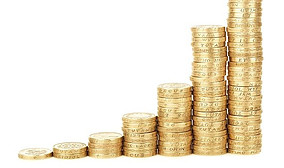
One of the downsides of using disposable nappies is cost.
The National Diaper Bank Network, USA, puts the monthly cost of disposable nappies at $70- $80.
The cost implication of this sum, over a two and a half year period is between $2100 – $2400.
Disposable nappies are still dear, even if you choose to use supermarket brands.
The Money Advice Service, UK, puts the average overall cost for own brand disposable nappies at £1875, as opposed to the cost of reusable nappies which averages at about £400.
This projection is:
“based on an average of two and a half year’s worth of nappies which comes to about 4000 nappy changes, and £100 of laundry costs,” according to the money advice service.
On the flip side, reusable nappies appear to be cheaper and a more common sense choice in the long run when compared to disposables. Nonetheless, they require a lot more effort and time.

With them come poohfests (frequent rinsing out of pooh), endless wash cycles, ironing, and striving to maintain their brilliant white colour, the pride of every cloth nappy mum!
Cost wise, there are different types of reusable nappies, some aren’t cheap to buy, initially.
Not to say that, you’d need reasonable quantities to be able to keep up with the 7 -10 times a day nappy changes seven days a week, in addition to the cost of detergents, and worrying about your electricity bills.
Convenience
If you are one to choose convenience over cost, then you can as well just go for disposables. They are a lot easier to manage, all you need do is to use and dispose properly.
Unfortunately, the disposing part only looks easy on paper!
The Environment
In reality, the most challenging aspect of the disposable nappy is its impact on the environment.
The Science Times reports that 187 billion disposable nappies are thrown away annually around the globe.
Experts view the impact of this on the environment as huge, particularly when put into account, that it would take anything between a quarter to half a millennium for one disposable diaper to fully decompose in a landfill!
It does come as no surprise as disposable nappies are made in part of plastic and other non-biodegradable elements like absorbent gel granules and latex.
The case isn’t so for natural fabrics like 100% cotton which degrades as fast as a few weeks to five months.
Your Decision Counts
Whether you choose to use reusable or disposable nappies is your personal decision.
If you have chosen to use disposable nappies, there is now a wide range of eco-friendly disposable nappies options as well as conventional brands to pick from.
Managing The Wet Months
The best way to manage the wet months in price and convenience, is by saving cost and spreading cost.
Saving cost
You can save cost by taking advantage of shop discount schemes like shop discount cards.
If you own one of such cards, you earn points as you shop, and those points build up to give you discount on your purchases over time.
Boots Parenting Club
Shops like Boots offer a discount program called the Parenting Club. Members receive expert parenting advice, discount deals and free gifts for their babies.
You start enjoying the benefits from the time you sign up, which could be as soon as you are certain that you are pregnant. Membership lasts until your child’s fifth birthday.
To avail yourself of these goodies, you must first be a Boot Advantage Card Holder.
Amazon’s Subscribe And Save Program
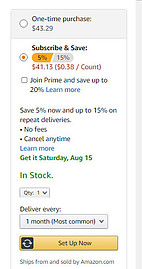
The Amazon Subscribe and Save program is another way parents can save on their purchases. The company offers discount prices to subscribers.
This program is very handy for new mums who make repeat purchases on items like baby food and diapering essentials.
Subscribers get a 5% discount for initial purchase and an additional 15% on repeat orders.
You have an option of having them shipped to you, monthly, bimonthly, quarterly or two times a year.
The subscription comes with no contract fees and can be canceled at any time.
Where you choose to join the Amazon Prime, you get a further reduction of 20% on baby consumables and other products subscriptions, “when receiving 5 or more products in one auto-delivery to a single address, compliments of Amazon Family”, according to Amazon.
Everymum.ie
I subscribed to eumom.ie, now known as everymum.ie, during my fourth pregnancy.
I found them to be very useful. Upon signing up, I received a voucher which allowed me to collect a gift pack from any SuperValu Store in Ireland.
The gift pack came with a generous supply of sample products for my baby, free coupons, and useful information for me.
Trying samples is a good way to test and decide on a product.
As a member, you could enter into competitions where you could win discount deals on family holidays and baby products.
I really liked that I received a weekly email that guided me through every week of my pregnancy, child’s development, parenting advice and other very helpful tips.
You also become a member of a community of other mums who shared their experiences and things like that.
I found them to be hugely hugely resourceful!
These are just a few of the many of such offers available both online and in store.
Spreading Cost

One of the ways in which you can spread cost when purchasing disposable nappies or other diapering essentials is stocking up.
I was first introduced to this idea almost 10 years ago by my friend Victoria, who advised me to bulk buy my diapering essentials.
The advice paid off. I bought a year’s supply of all my diapering needs.
I found it to be very convenient and easy on my pocket.
This experience was unlike what I had with my first three children.
During their time, it was endless trips to the shops for diapers, and heaven help you, if you ran out of cash for some reason.
New mum Jeanie opted to stock up on disposable nappies as well. Her advice to parents is to stock up.
She said:
“Stock up on diapers and wipes, we still haven’t bought any pampers. It spreads the cost”.
A Quick Note!
If you choose to tread on the cautious side, which is also a wise thing to do, as no two babies are alike, we will go with Ayaba’s advice too.
You May Want To Test The Waters First
She says: “Don’t splurge before your baby comes, test the waters first”.
This advice may seem to be at variance with the stock up idea.
Yet to “test the waters first” may be a deliberate choice of yours to wait until your baby arrives.
Doing so helps you to make an informed choice of what brand or brands to bulk buy, because now, you have a clear understanding of your baby’s skin sensitivity threshold.
You would have known, which worked well or didn’t for your baby.
Buying The Newborn Size
If you choose to go ahead with stocking up, do little of the Newborn sizes.
The Newborn size worked well for me, as they were a good fit for my baby Laura.
But with Ayaba, it was different. They were a perfect fit for second baby, Ida yet too small Ari. She had to start her with the size one.
Conversely, Zoe had bought the size one nappy for her baby but changed for a size zero as they were big for him.
You can also check out Jules’s Diapering Story for more diapering insight.
So Far…
I told you about some pros and cons of using the disposable and reusable nappies through the lenses of cost, convenience, and the environment.
I also gave you a few tips on how to manage the wet months by saving and spreading cost.
Next time, I shall be telling you about eco friendly and conventional disposable nappies and will be reviewing some popular brands in the market.
I can’t wait to see you then. Meanwhile, kindly leave a comment and please stay safe.
Further, reads and sources
The National Diaper Bank Network




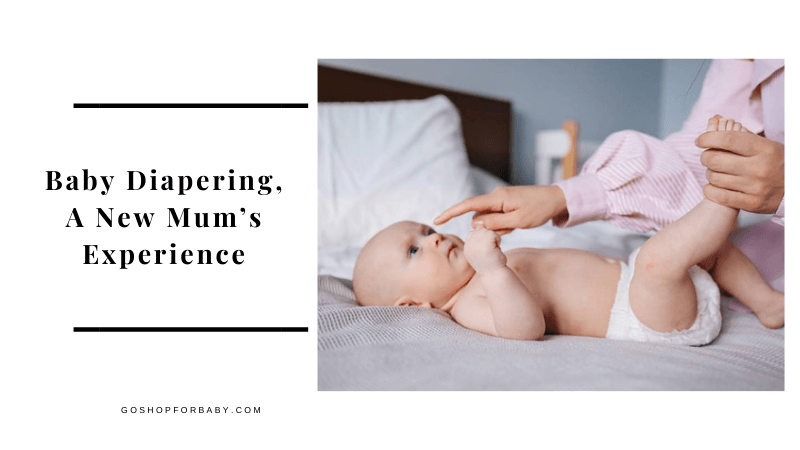
Thank you for another great piece, easy to read and understand. The logical flow of the the article, even the pictures compliment the story.
Look forward to your article.
This is great 👍
Dear Sunny,
Once again, thank you very much for encouragement. Much appreciated.
Such a fantastic write up my and very useful for the newbies 👌
Dear Ruth,
Thank you so much. This is very encouraging. I truly appreciate it.
I have no children, but I would love to have one one day. I think that I would go for re-usable nappies, since they are better for the enironment. The amount of disposable nappies that are thrown into the trash is enormous, it is a scary number. Yes, you have to wash disposable nappies with poop on them… I know, ew, but when you think of all the trash that goes into the environment I believe that re-usable nappies are the answer. 🙂
Awwwwnnn, Christine you mostly definitely will have them some day. As you would come to discover then, your diapering preference would be determined by quite a few factors. Right now, you are in a good position to research about the different choices out there. This way, you come into parenthood well informed. Nonetheless, every decision you make has it’s pros and cons. I will be talking more about that in my subsequent posts.
Thank you so much for sharing your views with us.
Hi Ibi,
This is a really important and informative article. I have two friends who have a brand new baby and I know that they would really benefit from your article. So, I have forwarded this onto them and I have encouraged them to comment and if they have any questions then they will get in touch with you, if that is OK with you?
Thank you for sharing and keep up the great work.
All the best,
Tom
Dear Tom,
Thank you so much for being ever so thoughtful. It’s absolutely okay to forward this posts to your friends and I will be happy to help.
Thank you
Interesting and applicable write up for newbies. I didn’t know I could stock up diapers for a year, I was always afraid what If my baby outgrow on a size, then I am stuck
with undersize diapers. Good
to read it worked for some people.
Dear Toyin,
Mums can stock up on diapers and buy up to a year’s supply, there is no need to worry. The way to go about it, is to always check the expiry date and buy boxes that have longer shelves lives. Another thing will be to keep your receipts for just in case you want to return or exchange. If the box(es) is unopened and well kept, I’m sure the shop will accept provided it’s within the stipulated time frame. Again, be careful with the newborn size, I usually bought them “as required” due to the fact that babies grow up fast and often outgrown them quickly. Finally, it’s best to buy, two boxes of each size, this way, you are in control. You can buy more if needed or can move to the next size without having any left over boxes.
Thank you so much Toyin for always sharing your experiences with us.
I enjoyed reading this article, I didn’t know there was so many steps towards choosing the right diaper for a baby. Now I see why my mother used to have stacks upon stacks of diapers in the closet at the time! I don’t plan on having kids soon, but this is good information to learn for when the time comes. Great work!
Hi Joshua,
Mum knows best, I tell you. I am glad that you found this article informative. I am also particularlly pleased that you have a great mum, to help guide you. You are in safe hands. I wish you the best when your time comes.
Ohh, I am so glad to read about reusable nappies. My baby boy is 43 now 😀 so the nappy days are long gone, and there were disposable ones back then as well, but I mainly used cotton reusables. I couldn’t make out how they look nowadays. Back then they were like square towels and I have used them years after as kitchen towels.
Like you said, the disposable ones may be easy today, but give a lot of problems after disposing them. And maybe one has nothing to do with the other, but my son didn’t need (reusable) nappies anymore after age 14 months, where my grandkids had them (disposable) till age 4 years.
Thanks for this article 🙂
Dear Hannie,
Thank you so much for sharing your experience with us. This is a rich resource for new mums.I really like the versatility of the cloth nappies because you could use them as traveling towels, burp clothes, and for you, kitchen towels.
Even the differences in potty experiences between your son and grandkids is very valuable. Thank you for sharing.
Very interesting read and totally in line with the experiences I had. I used both options and I can attest to the differences in disposable brand options. I changed brands after my firstborn because the second had skin reactions to the first brand. The reusable option didn’t work for me cos I couldn’t keep up with the pace of changing, washing, cleaning, drying, etc. Wish I had all this info beforehand. It will definitely help new mums make informed choices. Good job !
Dear Rommy,
Thank you so much for sharing your experience with us. Baby diapering is largely about learning and discoveries. We learn the way about what works for us and what doesn’t. Our babies also decide what works for them. It isn’t a one size fits all. No two children are the same, even born of the same mother. Your experience is a rich resource. Thank you